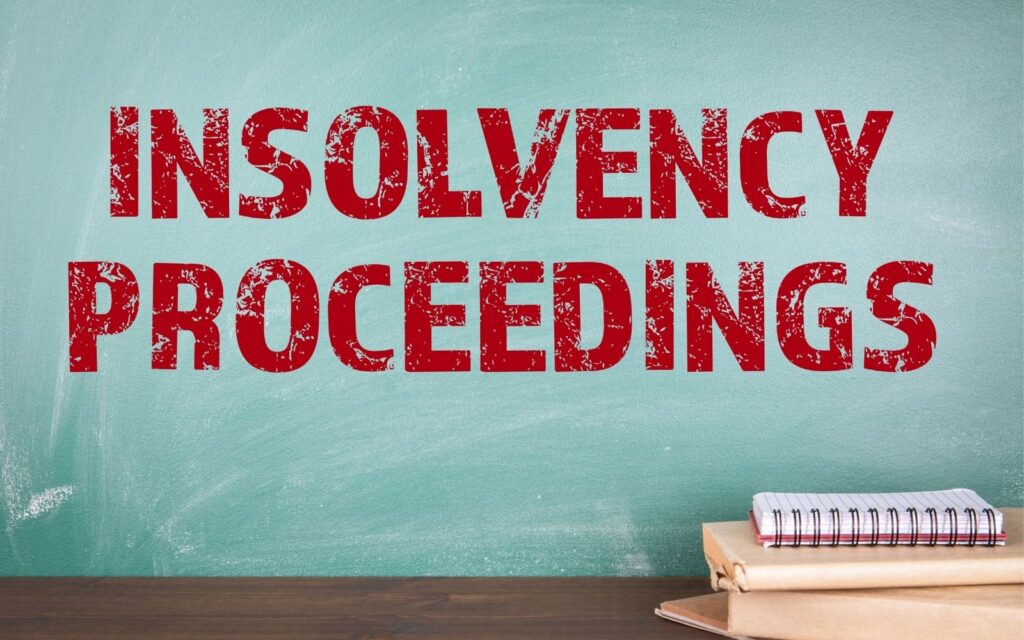Navigating Financial Challenges: Insights from Insolvency Lawyers
In today’s ever-changing economic landscape, businesses often face various financial challenges that can have significant implications for their survival and growth. When confronted with such difficulties, many organizations turn to insolvency lawyers for guidance and support. These legal professionals specialize in navigating complex financial issues, helping businesses find solutions and chart a path towards financial stability. In this article, we will explore the crucial role played by insolvency lawyers, delve into common financial challenges faced by businesses, examine strategies for overcoming them, and consider the impact of insolvency on stakeholders. Furthermore, we will discuss emerging trends in insolvency law and how technological advancements are shaping the field.
Understanding the Role of Insolvency Lawyers
Insolvency lawyers play a crucial role in assisting businesses facing financial challenges. They possess a deep understanding of the legal framework surrounding insolvency and can guide businesses through the intricacies of the process. These legal professionals provide expert advice and representation to ensure that their clients’ rights are protected throughout the insolvency proceedings.
The Legal Framework of Insolvency
Insolvency, at its core, refers to a situation where a business becomes unable to pay its debts as they fall due. Insolvency laws vary from jurisdiction to jurisdiction but generally provide a legal framework for dealing with financially distressed businesses. These laws aim to balance the interests of creditors and debtors, striving for fair and efficient resolution of insolvency cases.
Within the legal framework of insolvency, there are different types of proceedings that can be initiated. One such proceeding is liquidation, where the assets of the insolvent business are sold off to repay creditors. Another option is reorganization, which involves developing a plan to restructure the business and repay creditors over time. Insolvency lawyers are well-versed in these different proceedings and can advise their clients on the best course of action based on their specific circumstances.
Moreover, insolvency laws often include provisions for the protection of employees’ rights. These provisions ensure that employees are not left in a vulnerable position when a business becomes insolvent. Insolvency lawyers play a crucial role in advocating for the rights of employees, ensuring that they receive any outstanding wages or benefits owed to them.
See Also: The Expertise of Insolvency Lawyers Unveiled

Key Responsibilities of Insolvency Lawyers
Insolvency lawyers assume various responsibilities, ranging from advising distressed businesses on their legal rights and options to representing them in negotiations and court proceedings. They work closely with their clients to assess the financial situation, develop restructuring plans, and implement strategies that best serve the interests of all stakeholders.
One of the primary responsibilities of insolvency lawyers is to conduct a thorough analysis of their clients’ financial situation. This involves reviewing financial statements, assessing the viability of the business, and identifying potential sources of funding or restructuring options. By gaining a comprehensive understanding of the financial landscape, insolvency lawyers can provide informed advice to their clients.
In addition to financial analysis, insolvency lawyers also play a crucial role in negotiating with creditors. They aim to reach agreements that are favorable to their clients while also satisfying the interests of creditors. These negotiations can involve discussions on debt repayment plans, the sale of assets, or the restructuring of existing debts.
Furthermore, insolvency lawyers represent their clients in court proceedings related to insolvency. They prepare legal documents, present arguments, and advocate for their clients’ interests before judges and other relevant parties. Their expertise in insolvency laws and court procedures allows them to navigate the legal system effectively on behalf of their clients.
Insolvency lawyers also provide ongoing support to their clients throughout the insolvency process. They ensure that all necessary legal requirements are met, deadlines are adhered to, and any potential risks or challenges are addressed promptly. By offering comprehensive guidance and support, insolvency lawyers help their clients navigate the complexities of insolvency with confidence.
Identifying Financial Challenges in Businesses
Recognizing the signs of financial distress is crucial for businesses seeking to overcome their challenges. By understanding the common financial problems faced by organizations, leaders can take proactive measures to address them and improve their financial position.
Financial challenges in businesses can arise from a myriad of factors, such as poor cash management, excessive debt burden, declining sales, or economic downturns. These problems can lead to liquidity constraints, inability to meet financial obligations, and overall financial instability.
One common financial problem faced by businesses is poor cash management. This can occur when companies fail to effectively monitor and control their cash inflows and outflows. Without proper cash management practices in place, businesses may struggle to pay their bills on time, resulting in late payment penalties and damaged relationships with suppliers.
Excessive debt burden is another significant financial challenge that businesses often encounter. When companies accumulate too much debt, it can become difficult to make timely interest and principal payments. This can lead to a downward spiral of increasing debt and financial distress.
Declining sales can also pose a significant financial problem for businesses. When revenue decreases, it becomes harder to cover operating expenses and generate profits. This can result in a negative cash flow, making it challenging for businesses to meet their financial obligations.
Economic downturns can have a severe impact on businesses, causing financial instability and uncertainty. During economic downturns, consumer spending tends to decrease, leading to reduced sales for businesses. This can create a ripple effect, causing cash flow problems and making it harder for companies to stay afloat.

Early Warning Signs of Financial Distress
It is crucial for businesses to identify early warning signs of financial distress to intervene promptly and mitigate potential damage. These signs may include persistent cash flow problems, increased reliance on short-term borrowing, declining profitability, and delayed payments to suppliers or employees.
Persistent cash flow problems can be a red flag indicating financial distress. If a business consistently struggles to generate enough cash to cover its expenses, it may be a sign of underlying financial issues that need to be addressed.
Increased reliance on short-term borrowing can also indicate financial distress. When businesses resort to borrowing to meet their immediate financial needs, it may suggest that they are struggling to generate enough revenue to sustain their operations.
Declining profitability is another warning sign that businesses should pay attention to. If a company’s profits consistently decrease over time, it may indicate that its financial health is deteriorating and that corrective measures need to be taken.
Delayed payments to suppliers or employees can be indicative of financial distress as well. When businesses are unable to meet their financial obligations in a timely manner, it can strain relationships and create a negative reputation in the market.
In conclusion, businesses face various financial challenges that can significantly impact their stability and success. By identifying these challenges and recognizing the early warning signs of financial distress, leaders can take proactive measures to address them and improve their financial position.
Strategies for Navigating Financial Challenges
When faced with financial challenges, businesses need effective strategies to overcome them and restore financial stability. Insolvency lawyers can provide valuable guidance and assist in implementing various approaches tailored to the unique circumstances of each case.
Financial challenges can arise due to a variety of factors, such as economic downturns, unexpected expenses, or mismanagement of funds. It is crucial for businesses to address these challenges promptly and proactively to prevent further financial strain.
One strategy that businesses can employ is debt restructuring and negotiation. Debt restructuring involves renegotiating financial obligations with creditors to alleviate the burden on the business. Insolvency lawyers help businesses engage in constructive negotiations, seeking to reduce interest rates, extend repayment periods, or secure debt forgiveness where possible.
During the debt restructuring process, insolvency lawyers analyze the business’s financial situation, identify potential areas for negotiation, and develop a comprehensive strategy. They negotiate with creditors on behalf of the business, presenting a compelling case for debt relief based on the business’s financial outlook and ability to repay. This approach can provide businesses with much-needed breathing room and a chance to regain their financial footing.
In cases where the financial situation is irreparable, insolvency lawyers can guide businesses through insolvency proceedings such as liquidation or administration. Liquidation involves the orderly winding up of the business, selling off assets to repay creditors. It is a last resort option when the business is no longer viable and cannot continue its operations.

Administration, on the other hand, aims to rescue the business by appointing an administrator to manage its affairs and explore potential restructuring options. The administrator takes control of the business, assesses its financial position, and formulates a plan to maximize returns for creditors while preserving the business’s value. This process often involves cost-cutting measures, streamlining operations, and seeking new investment or financing opportunities.
Insolvency lawyers play a crucial role in guiding businesses through these insolvency proceedings. They ensure compliance with legal requirements, protect the rights of the business and its stakeholders, and facilitate a fair and transparent process. Their expertise in insolvency law and experience in navigating complex financial situations can make a significant difference in the outcome for businesses facing financial challenges.
It is important for businesses to seek professional advice early on when encountering financial difficulties. Insolvency lawyers can provide a comprehensive assessment of the business’s financial situation, identify potential strategies, and guide businesses towards the most appropriate course of action. By taking proactive steps and leveraging the expertise of insolvency lawyers, businesses can navigate financial challenges effectively and work towards restoring financial stability.
The Impact of Insolvency on Stakeholders
Insolvency can have profound consequences for the various stakeholders involved with a business. Understanding these implications is essential for both businesses and the legal professionals assisting them in navigating financial challenges.
Consequences for Creditors and Investors
Insolvency often results in financial losses for creditors and investors, who may struggle to recover their investments or outstanding debts. Insolvency lawyers help these stakeholders navigate the legal processes involved and advocate for their rights to maximize the chances of recovering their losses.
Implications for Employees and Management
Business insolvency can have significant ramifications for employees and management. Layoffs, job insecurities, and disruptions in day-to-day operations are common outcomes. Insolvency lawyers work to protect the legal rights of employees, ensuring fair treatment and proper compensation during the proceedings.
The Future of Insolvency Law
As the business landscape continues to evolve, so do the laws governing insolvency. Understanding emerging trends in insolvency law is crucial for insolvency lawyers to adapt their strategies and stay ahead in a rapidly changing environment.
Emerging Trends in Insolvency Law
The legal landscape is witnessing several trends in insolvency law, including an increased emphasis on pre-insolvency restructuring frameworks and the recognition of the economic value of preserving businesses. Many jurisdictions are adopting legislative reforms to facilitate these elements and promote more efficient and effective insolvency processes.
How Technological Advancements are Shaping Insolvency Law
Technology is also playing a pivotal role in shaping the future of insolvency law. Digital platforms and artificial intelligence-driven tools are enabling insolvency lawyers to analyze vast amounts of data, identify patterns, and make more informed decisions. These advancements are streamlining the insolvency process and enhancing efficiency.In conclusion, financial challenges are an inevitable part of running a business. However, with the insights and guidance provided by skilled insolvency lawyers, businesses can navigate these challenges with greater ease. By understanding the role of insolvency lawyers, identifying financial challenges, implementing effective strategies, and considering the impact on stakeholders, businesses can emerge stronger and more resilient. Moreover, staying abreast of emerging trends in insolvency law and leveraging technological advancements can further enable businesses to overcome financial challenges and thrive in an ever-changing economic landscape.


